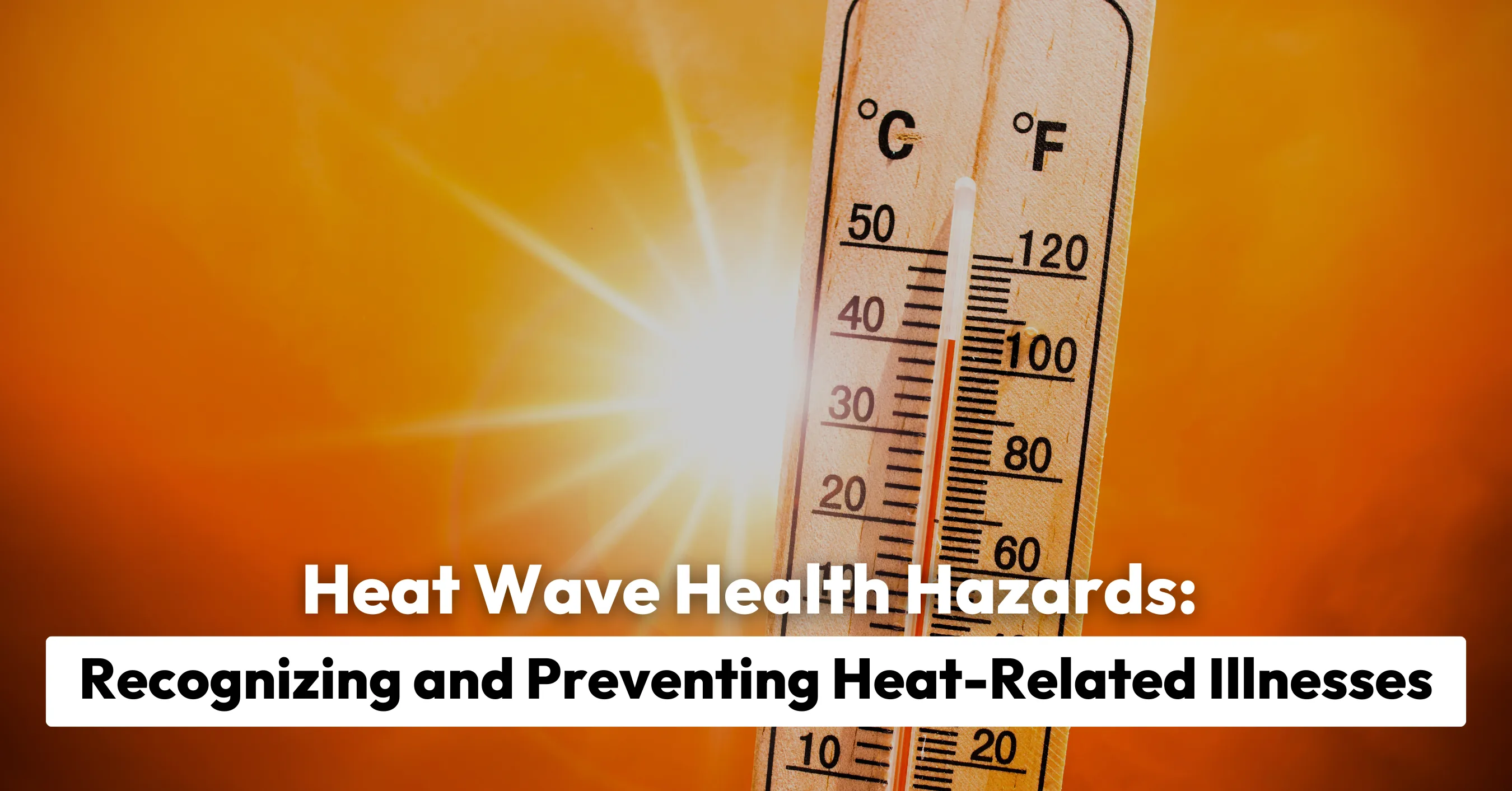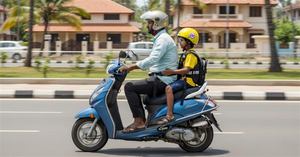Heat waves can be deadly, posing serious health risks to people of all ages. With rising global temperatures, extreme heat events are becoming more frequent and intense. Prolonged exposure to high temperatures can lead to dehydration, heat exhaustion, and even life-threatening conditions like heatstroke.
Understanding the risks and recognizing early symptoms can help prevent heat-related illnesses. This guide explores the common health hazards of heat waves, their symptoms, first aid measures, and preventive strategies to stay safe during extreme heat.
Common Heat-Related Illnesses
1. Heat Cramps
What It Is: Painful muscle spasms caused by dehydration and loss of electrolytes due to excessive sweating.
Symptoms:
• Muscle cramps (usually in the legs, arms, or abdomen)
• Heavy sweating
• Fatigue
First Aid:
• Move to a cool place and rest.
• Drink water with electrolytes or sports drinks.
• Stretch and massage the affected muscles.
2. Heat Exhaustion
What It Is: A condition caused by excessive loss of water and salt from the body, leading to extreme fatigue.
Symptoms:
• Heavy sweating
• Pale, clammy skin
• Dizziness and weakness
• Headache
• Nausea or vomiting
• Fast, weak pulse
First Aid:
• Move to a shaded or air-conditioned area.
• Drink cool water or sports drinks.
• Loosen tight clothing and apply cool, damp cloths to the body.
• If symptoms worsen, seek medical attention.
3. Heatstroke (Medical Emergency)
What It Is: A life-threatening condition where the body temperature rises above 104°F (40°C), leading to organ failure.
Symptoms:
• High body temperature (above 103°F or 39.4°C)
• Hot, dry skin (no sweating)
• Confusion or unconsciousness
• Rapid, strong pulse
• Seizures
First Aid:
• Call emergency services immediately (911 or local emergency number).
• Move the person to a cool, shaded place.
• Remove excess clothing.
• Apply ice packs to the neck, armpits, and groin.
• Do NOT give fluids if the person is unconscious.
Who Is at Risk?
While heat-related illnesses can affect anyone, some groups are more vulnerable:
• Older adults (65+): Reduced ability to regulate body temperature.
• Infants and young children: Sweat glands are not fully developed.
• People with chronic illnesses: Diabetes, heart disease, and respiratory conditions increase the risk.
• Outdoor workers and athletes: Higher exposure to direct heat.
• Pregnant women: Increased body temperature and dehydration risk.
Prevention Tips: Staying Safe in a Heat Wave
1. Stay Hydrated
• Drink plenty of water throughout the day, even if you don’t feel thirsty.
• Avoid alcohol, caffeine, and sugary drinks, as they cause dehydration.
• Eat water-rich foods like cucumbers, melons, and oranges.
2. Dress Smart
• Wear loose-fitting, light-colored, and breathable clothing.
• Use a wide-brimmed hat and sunglasses for extra protection.
3. Stay Indoors During Peak Heat Hours
• Avoid outdoor activities between 10 AM and 4 PM, when the sun is strongest.
• If you must be outside, take frequent breaks in the shade.
4. Keep Your Home Cool
• Use fans, air conditioning, or cool wet cloths to lower body temperature.
• Close curtains and blinds to block direct sunlight.
• Avoid using heat-generating appliances like ovens during the day.
5. Protect Others
• Check on elderly family members and neighbors regularly.
• Never leave children or pets in parked cars, as temperatures inside can rise dangerously high within minutes.
6. Recognize Warning Signs Early
• If you or someone else starts feeling dizzy, nauseous, or extremely fatigued, take immediate action to cool down.
Conclusion
Heat waves are more than just uncomfortable—they can be deadly if not taken seriously. Recognizing the symptoms of heat-related illnesses and taking preventive measures can save lives. By staying hydrated, avoiding excessive heat exposure, and being aware of at-risk individuals, you can stay safe and healthy even during the hottest summer days.
Take precautions, spread awareness, and prioritize your health this summer!









Be the first one to comment on this story.